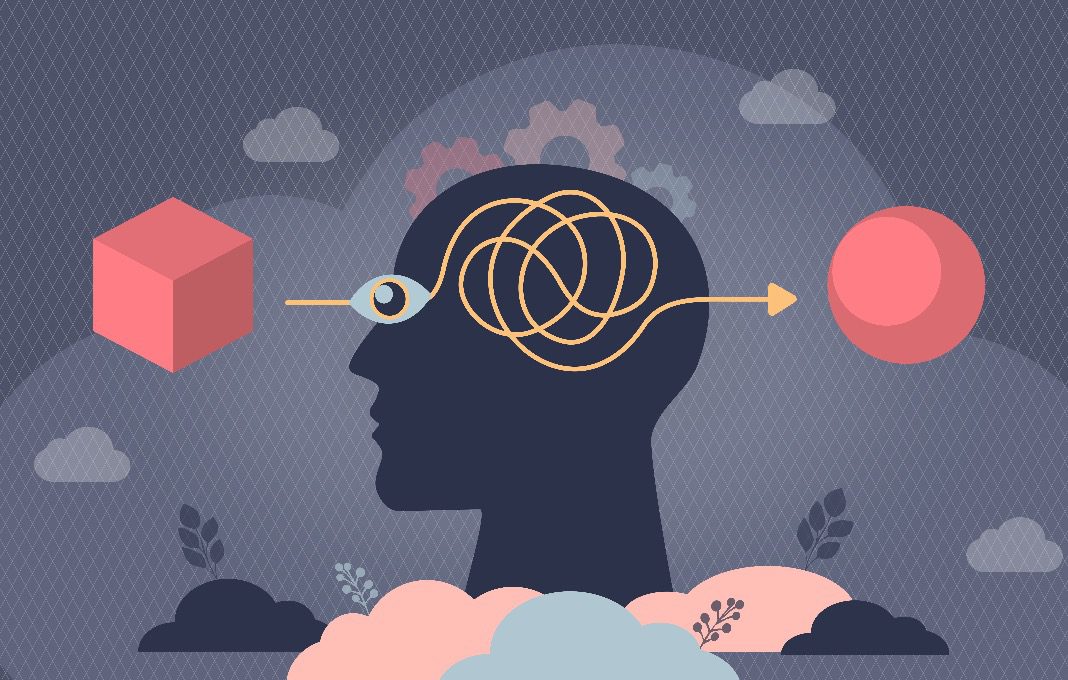Are Cognitive Biases Impacting Your Decision-Making?


Great decisions are the result of thorough analysis, open-mindedness, and strategic foresight. They drive innovation, foster growth, and create competitive advantages. The result? A resilient organization capable of navigating challenges and seizing opportunities.
Bad decisions, on the other hand, can stem from unchecked cognitive biases such as overconfidence, anchoring and confirmation bias. Even the most experienced executives can fall prey to these biases.
This is not just a theoretical concern; there are myriad examples of cognitive biases leading to costly mistakes, from failed mergers to misguided product launches. These leaders often have a distorted view of reality, which causes them to make choices based on incomplete or skewed information. The fallout from such decisions can be severe, with far-reaching consequences affecting everything from strategic direction to daily operational choices.
Awareness is the first step towards overcoming cognitive biases. When leaders understand how these biases function, they can develop strategies to counteract them. This involves creating a culture of critical thinking, encouraging diverse viewpoints, and utilizing data-driven decision-making tools.
Have you ever wondered why two equally intelligent individuals can arrive at drastically different conclusions based on the same set of facts? The answer often lies in the invisible hand of cognitive biases guiding their thought processes.
Cognitive biases are pervasive and often operate beneath the surface of our conscious awareness. The anchoring bias, for example, causes leaders to rely too heavily on the first piece of information they receive, which can skew their subsequent evaluations and decisions. Similarly, the availability heuristic leads many to overestimate the likelihood of events that are more readily recalled from memory, often because they are recent or particularly vivid, while undervaluing less memorable but equally significant information.
To combat the influence of cognitive biases, we must first recognize them. This involves more than just a cursory understanding of their definitions; it requires a deep dive into how these biases manifest in our daily decision-making.
Consider the sunk cost fallacy, where past investments unduly influence current decisions, leading us to ‘throw good money after bad.’ Or confirmation bias, where leaders have a tendency to favor information that confirms their preexisting beliefs while disregarding evidence that contradicts them. In a business context, this can lead to reinforcing flawed strategies simply because they align with our past experiences or expectations.
Are your current project evaluations objectively considering future potential, or are they mired in past commitments? Implementing structured decision-making frameworks, such as premortems and red teaming, can help identify and mitigate these biases. Additionally, regular training and awareness programs can empower employees at all levels to recognize these biases in themselves and others, fostering a culture of more objective and rational decision-making.
Creating a bias-resilient organization starts from the top. Leaders must set the tone by modeling behaviors that encourage critical thinking and questioning of assumptions. This involves fostering an environment where diverse perspectives are not only welcomed but actively sought out. Are your meetings structured in a way that promotes open dialogue and challenges to the status quo? Techniques such as devil’s advocacy, where a team member is assigned to argue against prevailing views, and anonymous feedback systems can help surface a broader range of insights and reduce the influence of dominant voices.
Additionally, leveraging technology, such as data analytics and machine learning, can provide insights that are less susceptible to human biases. These tools can identify patterns and trends that might be overlooked due to our cognitive limitations.
In the quest to make better decisions, technology serves as a powerful ally in overcoming the limitations imposed by cognitive biases. Advanced data analytics and artificial intelligence offer tools that provide objective insights, counteracting our subjective tendencies.
Predictive analytics can identify trends and patterns that human intuition might miss, helping executives make more informed strategic choices. Machine learning algorithms can process vast amounts of data to highlight correlations and causations that might not be apparent through traditional analysis. Technology helps facilitate transparency and accountability in decision-making processes. Decision-support systems can document the rationale behind each choice, making it easier to review and evaluate decisions post hoc. This transparency can help identify when biases have crept into the process and provide learning opportunities for future decisions.
The battle against cognitive biases is ongoing and requires a commitment to continuous learning and adaptation. Are you regularly revisiting your decision-making processes to identify areas for improvement? Encouraging a growth mindset within your team leads to a culture of continuous improvement. Providing training on cognitive biases and their impact empowers employees at all levels to recognize and counteract these influences in their daily work.
Adapting to changing circumstances also means being agile and responsive to new information and insights. In a rapidly evolving business environment, static decision-making processes quickly become outdated. Organizations should regularly review and update their decision-making frameworks to incorporate the latest research and best practices in cognitive science and behavioral economics. This might involve integrating new technological tools, refining evaluation criteria or revising how feedback is collected and analyzed.
Cognitive biases are an inherent part of the human experience, but their impact on business decisions can be profound and far-reaching. As leaders, it is our responsibility to guide our organizations through this complex landscape and ensure that our decision-making processes are as robust and bias-resilient as possible.


0

1:00 - 5:00 pm
Over 70% of Executives Surveyed Agree: Many Strategic Planning Efforts Lack Systematic Approach Tips for Enhancing Your Strategic Planning Process
Executives expressed frustration with their current strategic planning process. Issues include:
Steve Rutan and Denise Harrison have put together an afternoon workshop that will provide the tools you need to address these concerns. They have worked with hundreds of executives to develop a systematic approach that will enable your team to make better decisions during strategic planning. Steve and Denise will walk you through exercises for prioritizing your lists and steps that will reset and reinvigorate your process. This will be a hands-on workshop that will enable you to think about your business as you use the tools that are being presented. If you are ready for a Strategic Planning tune-up, select this workshop in your registration form. The additional fee of $695 will be added to your total.

2:00 - 5:00 pm
Female leaders face the same issues all leaders do, but they often face additional challenges too. In this peer session, we will facilitate a discussion of best practices and how to overcome common barriers to help women leaders be more effective within and outside their organizations.
Limited space available.

10:30 - 5:00 pm
General’s Retreat at Hermitage Golf Course
Sponsored by UBS
General’s Retreat, built in 1986 with architect Gary Roger Baird, has been voted the “Best Golf Course in Nashville” and is a “must play” when visiting the Nashville, Tennessee area. With the beautiful setting along the Cumberland River, golfers of all capabilities will thoroughly enjoy the golf, scenery and hospitality.
The golf outing fee includes transportation to and from the hotel, greens/cart fees, use of practice facilities, and boxed lunch. The bus will leave the hotel at 10:30 am for a noon shotgun start and return to the hotel after the cocktail reception following the completion of the round.